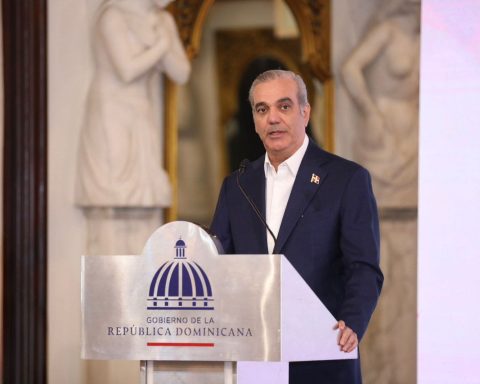TO
he foot of the majestic ceiba, in the humid sunny mornings and in the evening of La Realidad, in the Lacandona jungle, in which advisers and guests of the EZLN waited to meet with the command, Gustavo Esteva talked for hours with other advisers. It was not uncommon to hear him passionately converse with the philosopher Luis Villoro and the Jesuit priest Ricardo Robles on topics apparently so far removed from those meetings, such as the existence and nature of God. Due to his wisdom, that three-voice debate was worthy of the most prestigious university lecture hall.
It was 1996 and in San Andrés the Zapatistas and the federal government were celebrating, first, the Dialogues’ Roundtable on Indigenous Law and Culture, and later on Democracy and Development. Esteva participated in both. Her contributions on autonomy were essential. Others generated a true cataclysm in advisers.
This happened, to the scandal of activists, with his vision of human rights, which he considered an individualistic Western construction, which left communal rights out, as can be read in his article published at the invitation of the Hoarse Oaks in the magazine Kwira, 44. And, to the surprise of peasant leaders, his criticism of the concept of development. The metaphor of that word – he wrote in Development Dictionary– gave global hegemony to a purely Western genealogy of history, depriving peoples of different cultures of defining the forms of their social life
.
His vision of communality was strongly shaken in San Andrés. According to Gustavo, this consists of an indefinable reality. It is a horizon of intelligibility: living the world from a We. Communality – he wrote – It was born both as a word and as a term, under conditions that have led to confusion and its arbitrary use. To those who coined the concept (the Mixe Floriberto Díaz and the Zapotec Jaime Luna) it was born as a word, and in the struggle. They did not need to explain or define it. They tried to build it as a concept and as a category, to search for a common understanding on that ground. they didn’t do it right
. Despite this objection, the need for a constitutional reform inspired in part by this experience made it necessary to translate it into another language.
In the Dialogues of San Andrés Esteva went beyond proposing concepts to think about the new reality, confront government arguments, reflect on the scope of the moment or promote stimulating debates. There he was also a formidable systematizer of the discussions between the advisors of the Zapatistas. With an effective capacity for synthesis, he summarized the central ideas of the debate and faithfully wrote them down with unusual speed. The inevitable joke was that he already brought the conclusions written on his computer and only printed them.
Wherever he went, the writer’s interventions were always contrasting. In the midst of a pandemic, in a meeting with CNTE teachers in Oaxaca, he criticized hybrid education, since everything hybrid, from mules to seeds, is sterile.
The thought, complexity, mental order, theoretical brilliance and sophisticated ability to argue of who defined himself deprofessionalized intellectual
led one of his assistants for a few years to describe him as such an intelligent person, who is able to convince me that my mom is my dad. It is not true. But his arguments to prove otherwise are irrefutable.
.
Throughout her life, Esteva was many things. Business administrator; executive of transnational companies; high public official, almost Secretary of State; director of Anadeges, one of the most important NGOs in the country in the 1980s, which, keeping the acronym, changed its name and mission, from Analysis, Development and Management, literally analyse, develop and help
, to Autonomy, Decentralism and Management; founder of the University of the Earth in Oaxaca; columnist of the day; author of essential books to understand the peasant issue in Mexico as The battle in rural Mexicoand an original thinker recognized in Germany, Japan, the United States and Italy.
Esteva was, in his own way, a traveling companion of Raimon Panikkar, precursor of interreligious dialogue, defender, against the hegemonic universalism of the West, of a radical pluralism
which is not relativism. Also by Iván Illich, the Viennese thinker based in Cuernavaca from the mid-1960s to the end of the 1970s, a radical critic of the institutions of progress. But he was a permanent apprentice of the indigenous and popular struggles, from which he drew water to find the autonomous construction of a contemporary art of living
and a window to hope.
According to the author of Chronicle of the end of an era: the secret of the EZLN, the Zapatista insurrection generated the political transition in which the country still finds itself and continues to represent a political option for millions of people. Its social and political creation corresponds to the description of the convivial society, the one that adopts socialist ideals, but instead of trying to put at its service the dominant institutions created in capitalism, reverses or dissolves them. A movement that already has a place in the world. That is why it is not utopia.
Always brilliant, erudite, controversial, Gustavo Esteva opened horizons of intelligibility of the world in which we lived. He is going to be missed.
Twitter: @lhan55

















